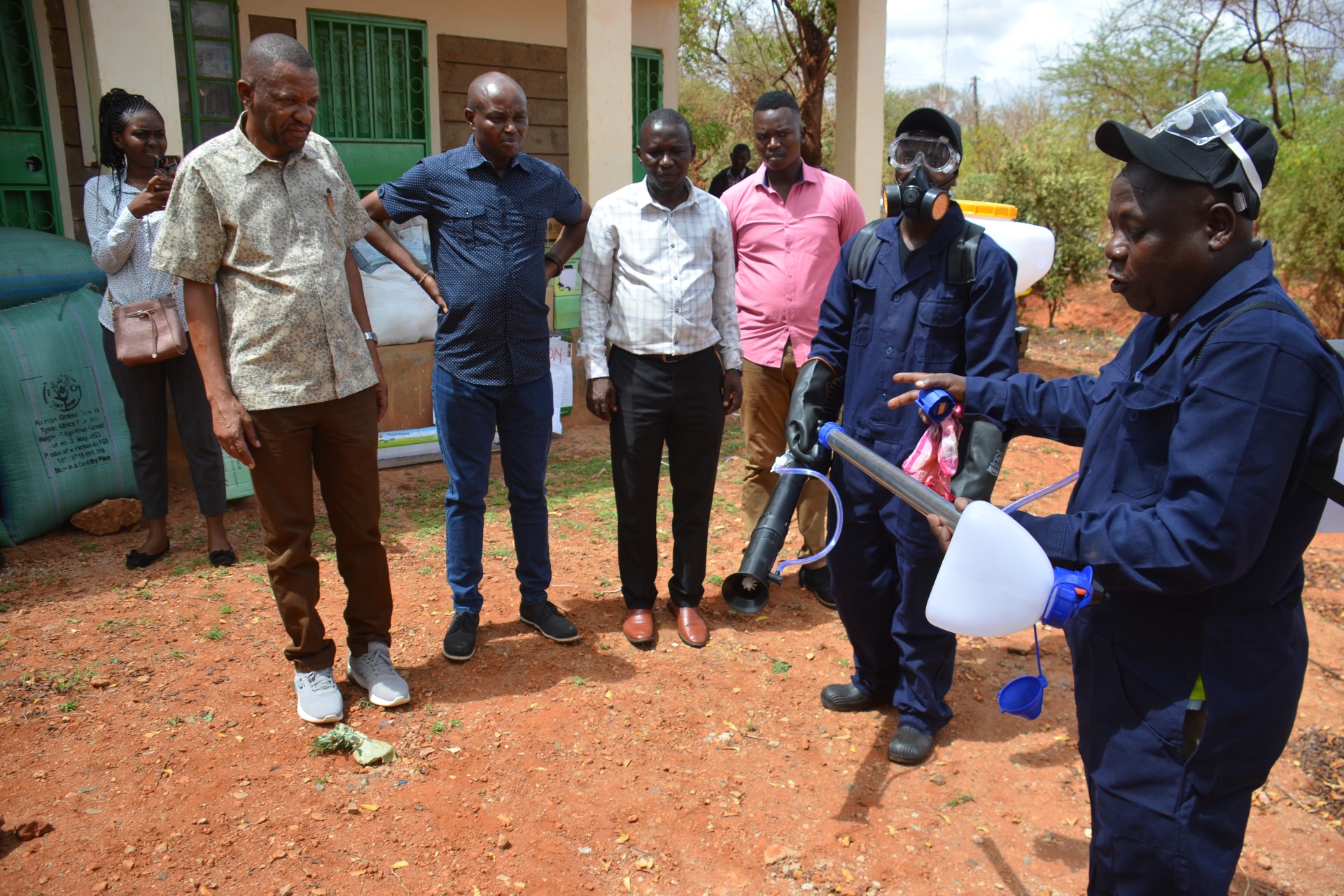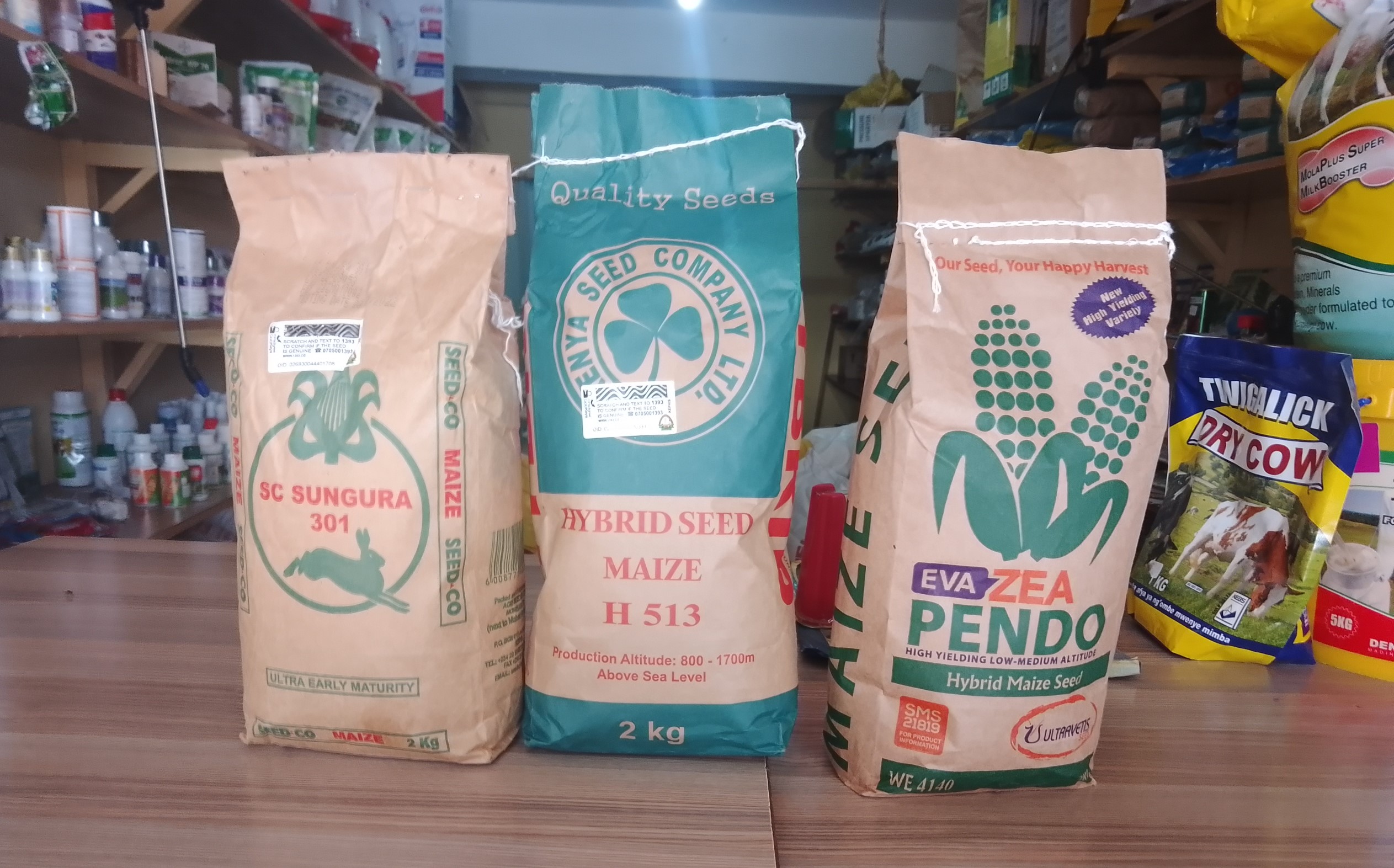Over 1000 farmers in Taita-Taveta County are set to benefit from high-quality livestock feed after the Food and Agriculture Organization (FAO) donated 250-tons of vital supplements to mitigate against the adverse effects of drought in the livestock sector.
The donation is primarily targeting 40 hotspot areas in the vast county that were hardest hit by drought.
Taita-Taveta Governor Andrew Mwadime said the feed will come in handy to support the livestock sector and avert animal deaths.
He noted that though the rains have started in several parts of the county, it will take weeks before pastures regenerate and the fields are replenished; a fact that made the livestock feed donation a timely intervention.
The governor was speaking at the National Cereal and Produce Board (NCPB) Depot at Voi on Monday where he flagged off the livestock feed distribution exercise.
“This donation is as a result of the good relations we have with our development partners. We want our farmers to benefit and we will not tire of putting their welfare first,” he said.
Mwadime pointed out that the livestock sector in the region had the potential to become a major income earner for residents owing to the conducive disease-free environment and availability of pastures in ranches.
The governor disclosed that the county had planned engagement with officials at the state department of livestock on how to revamp livestock value chain projects and position the region to access the international livestock market.
“We have planned for a meeting with the livestock department on how our farmers will access the international market. We also want to work on how to revamp stalled projects like the Bachuma livestock multiplication center,” he said.
Before the onset of the current rains, Taita-Taveta was reeling from severe drought that saw livestock including goats, sheep and cows die in their thousands.
County Executive Committee Member (CECM) for Agriculture and Livestock Mr. Eric Kyongo said that hundreds of farmers reported massive losses as drought devastated both small-scale and large-scale livestock keepers. The ranches were not spared either as hundreds of livestock perished in the severe drought.
Mr. Kyongo stated that his department was now prioritizing commercializing the livestock sector through investing in pasture-promotion practices with an aim of creating sufficient buffer stocks to be used in times of drought.
He added that apart from distribution of the feeds, hundreds of farmers have also been given hybrid grass seeds to populate pastures that had been degraded by the drought. The farmers are also being provided with energy-efficient hay-making equipment and insulated bags for storage of the grass.
“We are now commercializing pasteurization of farms where efficient management of land and farms will see farmers harvest fodder for sale. The fodder can also be used when drought hits the pastures,” he said.
To enhance the project, the county administration has asked farmers in areas that are prone to human-wildlife conflict to also factor in investing in growing grass for commercial purposes.
High-yield and fast-growing grass variety is being viewed as an alternative to providing both fodder for livestock and revenue for farmers in troubled hotspots.

